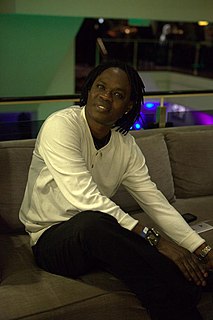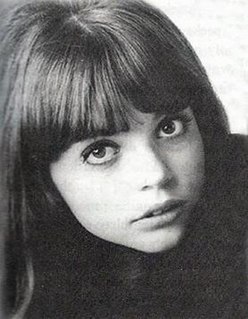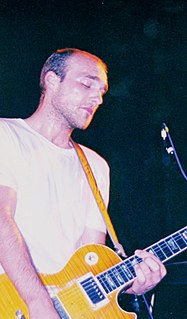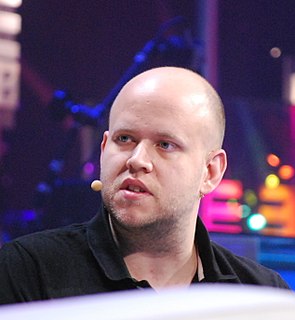A Quote by Troy Carter
The more people are listening to music and experiencing it, the more value for both the music companies and the artist, especially when their financial model is built around that . With the music industry, everybody is starting to understand that doesn't begin with a piece of music.
Related Quotes
I did not like that name "world music" in the beginning. I think that African music must get more respect than to be put in a ghetto like that. We have something to give to others. When you look to how African music is built, when you understand this kind of music, you can understand that a lot of all this modern music that you are hearing in the world has similarities to African music. It's like the origin of a lot of kinds of music.
I find myself more affected by music the more I do it. Particularly when you're touring, and you're in the bus, and you're listening to loads of music. Life becomes far more dramatic, I guess - you're never in the same place; you're constantly meeting new people. You almost become more sensitized to music.
I find myself more affected by music the more I do it. Particularly when you're touring and you're in the bus and you're listening to loads of music. Life becomes far more dramatic, I guess - you're never in the same place, you're constantly meeting new people. You almost become more sensitized to music.
I think it's okay that there's digital music out there, because that does mean more people have access. I mean, you're a student, and you're studying music, and you want to find a CD of a whole work, but there's one piece that intrigues you. It's easy to get that piece for a dollar for the most part. And it's so easy for people to carry around music digitally.
Indie music is 'it' now. It's kind of a revolution to the music: 1980s, 1990s music was getting very sanitized; they were complying with the music industry. Music was getting more and more dead in a way. Now, because of the social climate that's very severe, the artists are compelled to start being real. It's really great that indie music is now.
I realized a lot of my friends were going to nightclubs and listening to house music. I was hanging out with them and going to clubs as well but I didn't really understand that kind of music. I was listening to country music and was heavily into Hank Williams, bluegrass, and Bob Dylan. So I just decided I really needed to understand what this music I was hearing in the clubs was all about.


































